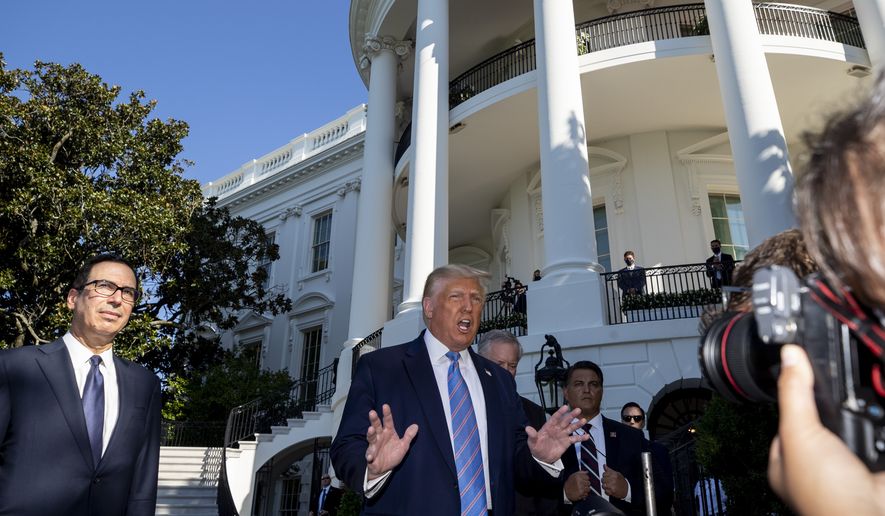Uncle Sam set a new monthly record for income in July with $563 billion, the Congressional Budget Office said Monday, as taxpayers finally paid up after the IRS delayed the normal April filing deadline because of the coronavirus.
The government still spent more — $624 billion — leaving a one-month deficit of $61 billion.
But that’s a vast improvement over previous months of the pandemic, when the government ran deficits ranging from nearly $400 billion in May, up to nearly $865 billion in June.
With two months still to go in fiscal year 2020 Uncle Sam’s cumulative deficit so far is a staggering $2.8 trillion, CBO said. That’s twice the previous record set under President Obama during the Great Recession.
Over that same 10-month period, the government’s tax collections are running 1% behind fiscal year 2019. But before coronavirus hit, they were running 6% ahead, signaling just how deep the drop-off in revenue has been as business closed shop and workers found themselves out of jobs.
Corporate tax receipts spiked from $7 billion in July 2019 to $68 billion last month. Non-withheld individual tax payments — which roughly track the tax bills that would have been due in April — rose from $12 billion last July to $292 billion last month.
The bigger damage to the fiscal picture has come on the spending side, though, where Congress has approved trillions in new spending without any offsetting cuts.
Over the last four months, CBO calculates, the government has pushed $3.3 trillion out the door.
During the same period last year the government spent just $1.5 trillion, and as recently as 2008 the government spent less than $3 trillion for the entire year.
The Great Recession sent spending soaring, and the coronavirus pandemic has done the same.
In July alone, CBO said, unemployment benefits rose from $3 billion last year to $110 billion this year. The Small Business Administration, which administers the Paycheck Protection Program loan guarantees, saw its spending rise from $103 million in July 2019 to $26 billion last month — a 250-fold increase.
Other welfare-style programs like Medicaid and food assistance also rose as people facing tough times rushed to sign up.
And Medicare spending surged as Congress used it to funnel additional cash to doctors and hospitals. In both cases the money was advance payments, and is expected to be recouped in future years.
The new numbers come as Congress debates another round of coronavirus relief. Capitol Hill Democrats have sought nearly $4 trillion in new assistance, while Republicans’ opening ante was about $1 trillion.
Negotiations to bridge the gap stalled out, though both sides say there’s still a willingness to do more.
The one area of good news in CBO’s report is on spending on interest on the debt. With the economy down and the federal funds interest rates at a record low, interest payments tumbled $50 billion, to just $110 billion, for the four months from April to July.
CBO’s numbers are a preliminary estimate. Final July data will be released by the Treasury Department in several days.
• Stephen Dinan can be reached at sdinan@washingtontimes.com.




Please read our comment policy before commenting.